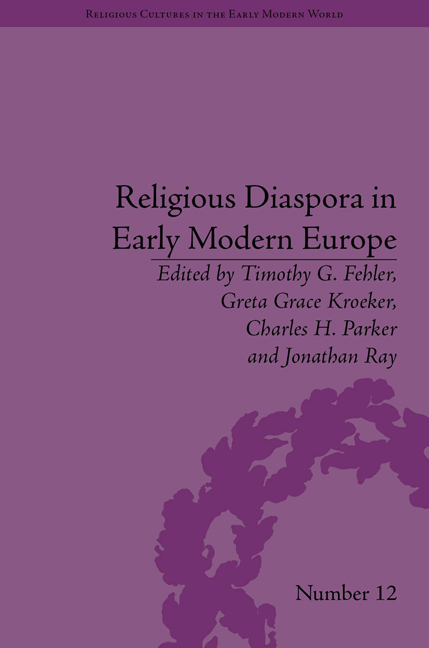Book contents
- Frontmatter
- CONTENTS
- Acknowledgements
- List of Contributors
- List of Figures
- Introduction
- Part I Tactics for Inclusion
- Part II Programmes of Restoration
- 4 Exile, Education and Eschatology in the Works of Jan Amos Comenius and John Milton
- 5 Missionaries as Exiles: Calvinist Strategies for Restoration in Communities under the Dutch East India Company
- 6 Niccolò Guidalotto da Mondavio and his City View of Constantinople (1662): The Experience of an Exile
- 7 Educating for Martyrdom: British Exiles in the English College at Valladolid
- Part III Methods of Coping
- Notes
- Index
4 - Exile, Education and Eschatology in the Works of Jan Amos Comenius and John Milton
from Part II - Programmes of Restoration
- Frontmatter
- CONTENTS
- Acknowledgements
- List of Contributors
- List of Figures
- Introduction
- Part I Tactics for Inclusion
- Part II Programmes of Restoration
- 4 Exile, Education and Eschatology in the Works of Jan Amos Comenius and John Milton
- 5 Missionaries as Exiles: Calvinist Strategies for Restoration in Communities under the Dutch East India Company
- 6 Niccolò Guidalotto da Mondavio and his City View of Constantinople (1662): The Experience of an Exile
- 7 Educating for Martyrdom: British Exiles in the English College at Valladolid
- Part III Methods of Coping
- Notes
- Index
Summary
Loe, here an Exile; who to serue his God,
Hath sharply tasted of proud Pashurs Rod,
Whose learning, Piety, & true worth being knowne
To all the world, makes all the world his owne.
These words appear beneath a 1652 engraving of Jan Amos Komenský, the polymath scholar, educational reformer and bishop of the Moravian Unitas Fratrum (Unity of Brethren), generally known by his Latinized name Comenius. Comenius made ‘all the world his owne’, not only by winning admirers across a wide geographical area but also, in another sense, through his idiosyncratic endeavours during his long-running exile to bring about a ‘universal reformation’ of the entire world by reordering and teaching all knowledge to all people by means of a ‘universal wisdom’ (pansophia). Comenius's physical exile, brought about by war, became a spiritual and intellectual pilgrimage bringing him into numerous intellectual circles across Europe. Among those connected to the circles influenced by Comenius was the poet John Milton. Though not physically exiled, Milton, too, utilized exile motifs in his writing and, like Comenius, was a teacher who proposed educational reforms. Both men saw the world as suffering a cosmic exile caused by the Fall of humanity, and both saw education as having the potential, at least in part, to restore the harmony of the world and thus to reverse this cosmic exile.
- Type
- Chapter
- Information
- Religious Diaspora in Early Modern EuropeStrategies of Exile, pp. 47 - 60Publisher: Pickering & ChattoFirst published in: 2014



